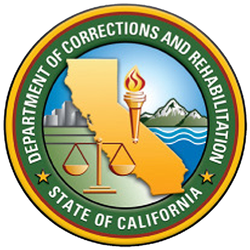Prop. 57’s success depends on troubled agency

Proposition 57, which amends the California Constitution to make it easier for some felons to win release from state prison, coasted to victory Tuesday, winning more than 60 percent of the vote in initial statewide tallies and giving Gov. Jerry Brown a triumph on an issue — criminal justice reform — that he sees as crucial to his legacy.
The Brown-orchestrated, well-funded Yes on 57 campaign crushed lightly funded opponents, led by the California District Attorneys’ Association. A ballot measure description that used technical, arcane definitions to say the proposition only applied to “nonviolent” felons made victory close to a sure thing. District attorneys’ argument that the definition included many crimes involving violence, including sexual violence — while factual — got little traction.
But for Proposition 57 to be the policy triumph that Brown envisions, it will require improved performance from a state agency that’s faced frequent criticism from oversight agencies, judges and activists for decades: the California Department of Corrections and Rehabilitation.
Under the ballot measure, the corrections department will be directed to give sentence credits to inmates for progress toward rehabilitation as judged by behavior, educational achievements and other factors. The credits are awarded after a formal, documented evaluation process.
With the high-profile problems the corrections department has faced because of overcrowding and prisoner health care so poor that it led to the intervention of a federal judge, officials can deflect blame. A punitive “three strikes and you’re out” justice system overfilled prisons, and governors and legislators balked at building new facilities and adequately funding prison medical needs.
Corrections department rapped for rehab, parole woes
 But a review of the Office of the California State Auditor’s records show far-ranging critiques of the corrections department on many other issues as well. Since 2006, the state auditor has issued more than 50 official evaluations of state government performance in which the corrections agency is cited. Most are critical, including two audits that involve tasks exactly like or very similar to those that Proposition 57 expects the agency to handle competently.
But a review of the Office of the California State Auditor’s records show far-ranging critiques of the corrections department on many other issues as well. Since 2006, the state auditor has issued more than 50 official evaluations of state government performance in which the corrections agency is cited. Most are critical, including two audits that involve tasks exactly like or very similar to those that Proposition 57 expects the agency to handle competently.
A 2011 report looked at Correctional Offender Management Profiling for Alternative Sanctions, or COMPAS, a software program that officials said would help them identify inmates most likely to be successfully rehabilitated and reintegrated into public life.
The report said COMPAS was not used to evaluate all eligible inmates, despite initial promises; was not implemented consistently at the 12 “reception centers” where decisions are made about which prisons should receive new convicts; and faced resistance from corrections officials who didn’t think it was worth their time. The audit said there was a lack of transparency with how COMPAS was implemented and a lack of accountability as to whether it really worked in increasing rehabilitation of prisoners.
A 2008 report said the corrections department regularly ignored state law when processing prisoners for parole. When an inmate is paroled, a discharge review report is required in which parole agents argue for or against release; their recommendations can be overturned by supervisors. Auditors found such reports were not on record for “4,981, or 9 percent, of the 56,329 parolees discharged between January 1, 2007, and March 31, 2008.” They cited concerns that the violent criminal histories of some of these parolees was not considered before their release.
The audit also found examples of the agency breaking its own guidelines in cases in which supervisors overruled parole agents’ recommendations and ordered release of inmates “without documenting the reasons for their decisions.” It also found evidence that supervisors had unilaterally revised discharge reports prepared by parole agents.
The corrections department mostly rejected the 2011 criticisms on its rehabilitation evaluation program. It accepted and agreed with the 2008 report on the need for 100 percent compliance on discharge reports and on the need to “prohibit unit supervisors and district administrators from altering discharge review reports prepared by others.”
The 50-plus audits citing the corrections agency since 2006 can be found on the state auditor’s website: https://www.bsa.ca.gov/reports/agency/22
Chris Reed
Chris Reed is a regular contributor to Cal Watchdog. Reed is an editorial writer for U-T San Diego. Before joining the U-T in July 2005, he was the opinion-page columns editor and wrote the featured weekly Unspin column for The Orange County Register. Reed was on the national board of the Association of Opinion Page Editors from 2003-2005. From 2000 to 2005, Reed made more than 100 appearances as a featured news analyst on Los Angeles-area National Public Radio affiliate KPCC-FM. From 1990 to 1998, Reed was an editor, metro columnist and film critic at the Inland Valley Daily Bulletin in Ontario. Reed has a political science degree from the University of Hawaii (Hilo campus), where he edited the student newspaper, the Vulcan News, his senior year. He is on Twitter: @chrisreed99.
Related Articles
Let's Dig Through A Budget!
Katy Grimes – I spoke with a man yesterday who was looking for information about his city council salaries and
Do CA electeds really believe pot is healthier than e-cigarettes?
E-cigarettes that are far healthier than the normal kind remain under siege in California. Why? Cigarettes just aren’t OK with
Guv Backs Federal Pension Reform
Steven Greenhut: Gov. Arnold Schwarzenegger released this statement today regarding a new congressional bill requiring state and local governments to



